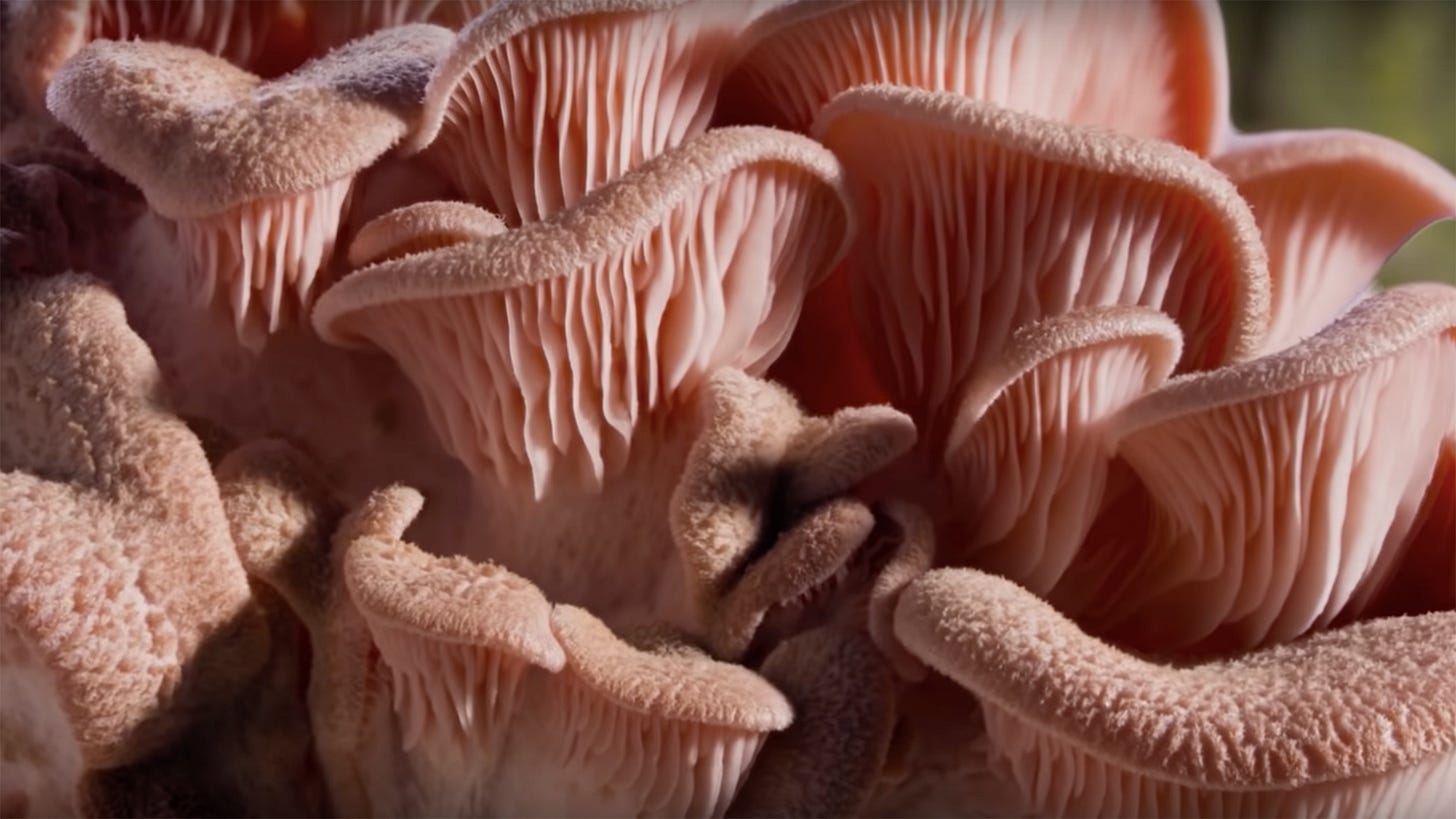Right now I am reading Merlin Sheldrake’s wonderful book on mycelia, Entangled Life, and feeling we have a lot to learn from the world of fungus and lichen. I was lucky enough to meet Merlin at a recent conference in Yorkshire. We were on a panel together with Peter Sjöstedt-Hughes, a loquacious philosopher of panpsychism. At the time I felt unprepared to follow the rapid flow of Peter’s ideas — I hadn’t done my homework.
I confess to this nagging sense that I don’t like panpsychism at all, but I can’t explain it to myself fully at this point. Okay, here goes: Panpsychism argues that everything possesses mind-like attributes. It seems like a halfway point between materialism and analytic idealism, which proposes consciousness is the “ontological primitive” and requires no dualism. I find idealism far more elegant, straightforward, and true.
We were meant to be discussing the “sentient other” in psychedelic experiences, but somehow I felt we never came to grips with this topic. At one point, Merlin noted that the self is probably not a singular thing in any case, but something relational and multiple, like the webs of interconnected lives he studies in the fungal and microbial world. That idea stuck with me and made me eager to read his book, which I recommend both for its content and its lyricism.
Human societies have always pivoted around prodigious fungal metabolisms. A full litany of the chemical accomplishments of fungi would take months to recite. Yet despite their promise, and central role in many ancient human fascinations, fungi have received a tiny fraction of the attention given to animals and plants. The best estimate suggests that there are between 2.2 and 3.8 million species of fungi in the world—six to ten times the estimated number of plant species—meaning that a mere six percent of all fungal species have been described. We are only just beginning to understand the intricacies and sophistications of fungal lives. — Merlin Sheldrake, Entangled Life
This was also the weekend that Elon Musk finally wrestled away control over Twitter in a monstrous $44 billion dollar deal, mindboggling in scale. Like many of us, I have been keeping a half-eye on Musk, trying to understand what he is about and what motivates him — what his end game is. He seemed at one point a likable figure, but increasingly I find him murky, ambiguous and dark.
Unsurprisingly, like Bill Gates and Mark Zuckerberg, Musk’s projects are deeply meshed within the military industrial complex. Musk slants toward the libertarian Right, likes to slag Bernie Sanders while seeking reconciliation with Putin and his henchmen. My sense is that Musk aims at some version of a technocratic future, with the world under the control of a tiny elite.
I agree with the leitmotif of Jean Renoir’s cinematic masterpiece, that “Everyone has their reasons.” Probably even the most vile person in the world believes they are doing the right thing…
Keep reading with a 7-day free trial
Subscribe to Liminal News With Daniel Pinchbeck to keep reading this post and get 7 days of free access to the full post archives.





